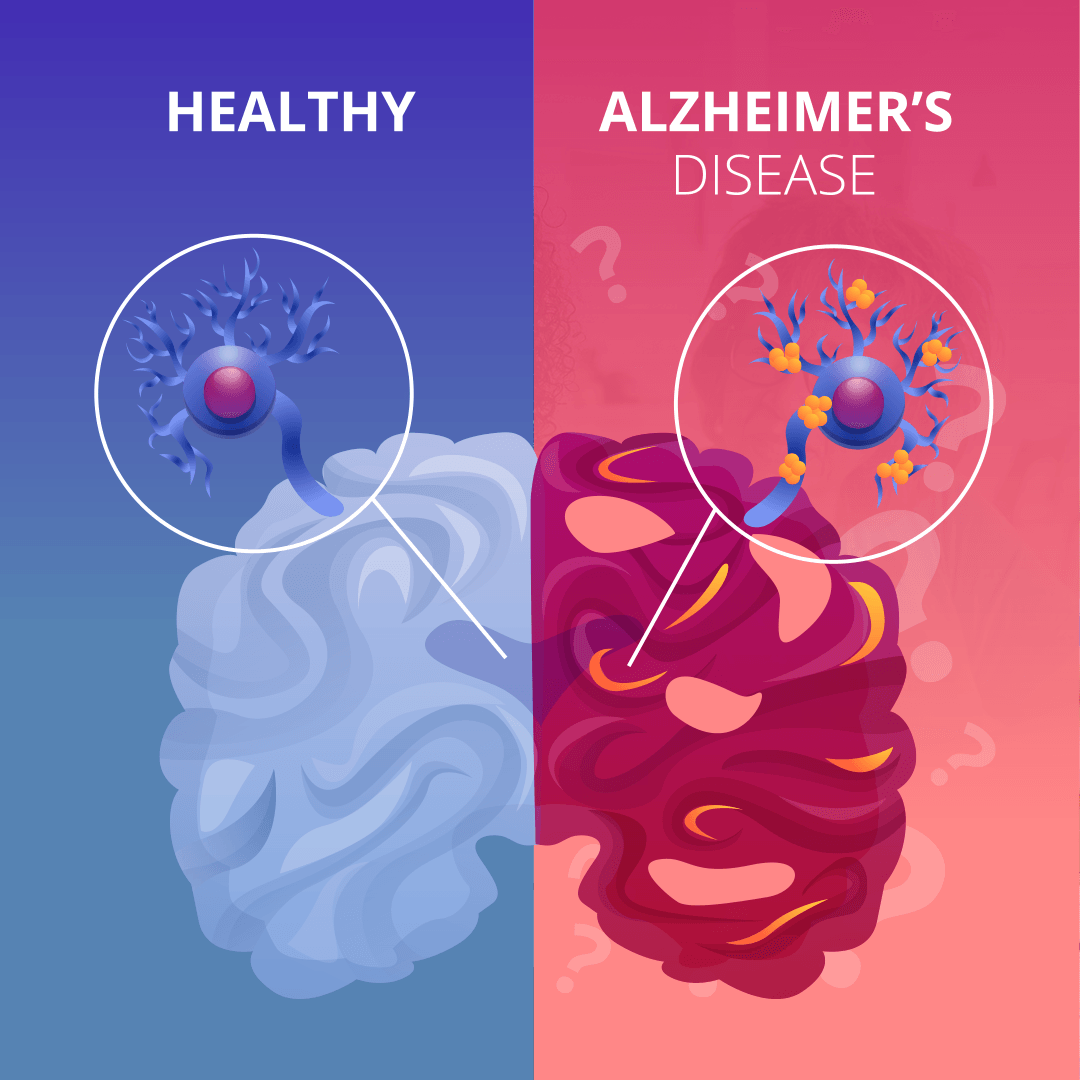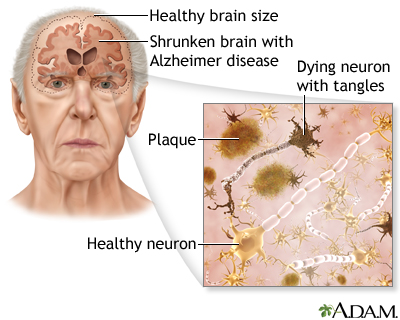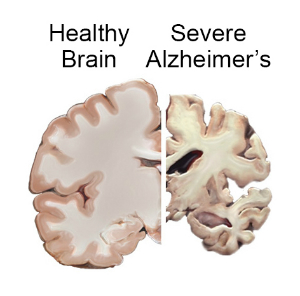Alzheimer’s disease is a brain disorder that gets worse over time. It’s characterized by changes in the brain that lead to deposits of certain proteins. Alzheimer’s disease causes the brain to shrink and brain cells to eventually die. Alzheimer's DiseaseAlzheimer’s disease is the most common cause of dementia — a gradual decline in memory, thinking, behavior and social skills. These changes affect a person’s ability to function. Of the about 55 million people worldwide with dementia, 60% to 70% are estimated to have Alzheimer’s disease.



Symptoms of Alzheimer’s Disease
- Repeat statements and questions over and over.
- Forget conversations, appointments or events.
- Misplace items, often putting them in places that don’t make sense.
- Get lost in places they used to know well.
- Eventually forget the names of family members and everyday objects.
- Have trouble finding the right words for objects, expressing thoughts or taking part in conversations.
- Difficulty in Thinking and reasoning
- Difficulty in Making judgments and decisions
- Difficulty in Planning and performing familiar tasks
- Changes in personality and behaviour
- Depression.
- Loss of interest in activities.
- Social withdrawal.
- Mood swings.
- Distrust in others.
- Anger or aggression.
- Changes in sleeping habits.
- Wandering.
- Loss of inhibitions.
- Delusions, such as believing something has been stolen.
Supportive Therapy:
- Age – Advanced age is the most significant risk factor for developing Alzheimer’s disease. The risk increases significantly after the age of 65.
- Genetic – Certain genetic factors can increase the risk of developing Alzheimer’s disease.
- Family History – Having a family history of Alzheimer’s disease can increase an individual’s risk of developing the condition.
- Amyloid Plaques and Tau Tangles – Alzheimer’s disease is characterized by the accumulation of abnormal protein deposits in the brain called amyloid plaques and tau tangles. These deposits disrupt normal brain function and contribute to the progression of the disease.
- Neurotransmitter Imbalance – Alzheimer’s disease is associated with a disruption in the levels of certain neurotransmitters, including acetylcholine, which is important for memory and cognitive function.
- Chronic Inflammation – Ongoing inflammation in the brain may contribute to the development and progression of Alzheimer’s disease.
- Lifestyle Factors – Certain lifestyle factors, such as a sedentary lifestyle, poor diet, obesity, smoking, and chronic health conditions like diabetes and cardiovascular disease, may increase the risk of developing Alzheimer’s disease.
Supportive Therapy:
Risk factors
Age
Increasing age is the greatest known risk factor for Alzheimer’s disease.
Family history and genetics
The risk of developing Alzheimer’s is somewhat higher if a first-degree relative — your parent or sibling — has the disease.
Sex
Overall there are more women with the disease because they tend to live longer than men.
Head trauma
Several large studies found that people age 50 years or older who had a traumatic brain injury (TBI) had an increased risk of dementia and Alzheimer’s disease.
Air pollution
Studies in animals have found that air pollution particulates can speed the breakdown of the nervous system.
Excessive alcohol consumption
Drinking large amounts of alcohol has long been known to cause brain changes and early dementia.
Poor sleep patterns
It has shown that poor sleep patterns, such as trouble falling asleep or staying asleep, are linked to an increased risk of Alzheimer’s disease.
At KPN Ayurveda, we provide the best Autism treatment.
